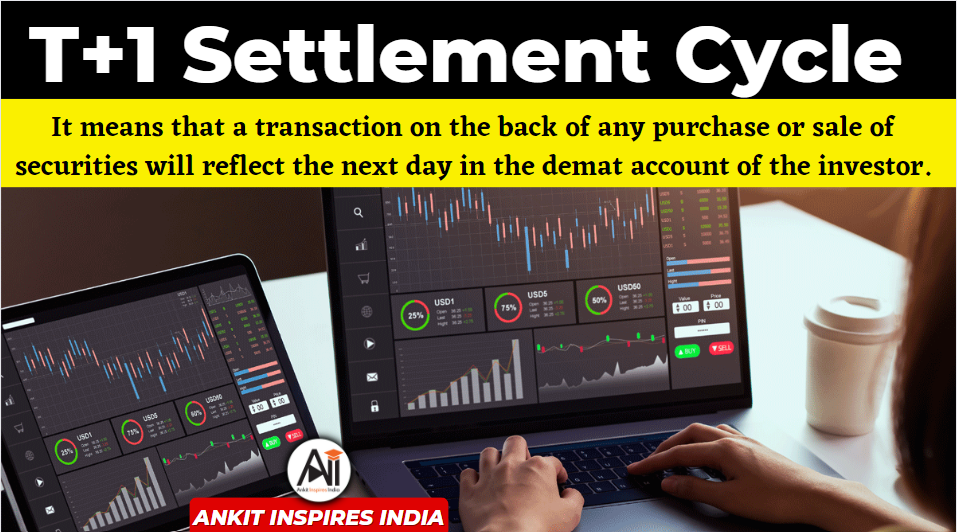India becomes the second country in the world today after China to start the 'trade-plus-one' (T+1) settlement cycle in top listed securities.
- After China, India will become the second country in the world to start the ‘trade-plus-one’ (T+1) settlement cycle in top listed securities.
- T refers to the trading day. Currently, the settlement is largely done on a T+2 basis, meaning that securities bought or sold by an investor will reflect in his/her dematerialised account after two days.
- About 200 stocks, which account for more than 80 per cent of India’s market capitalisation, will be settled on a next-day basis, with effect from January 27.
- India will be the second largest market after China to implement the ‘T+1’ settlement cycle of stocks. Most international markets such as the US, Europe, and Japan are still under the ‘T+2’ settlement cycle.
What is T+1 settlement plan?
The T+1 settlement cycle means that trade-related settlements must be done within a day, or 24 hours, of the completion of a transaction. For example, under T+1, if a customer bought shares on Wednesday, they would be credited to the customer’s demat account on Thursday. This is different from T+2, where they will be settled on Friday.
Aim : This is aimed at bringing operational efficiency, faster fund remittances, share delivery, and ease for stock market participants.
History : This is not the first time that Sebi has chosen to shorten the settlement cycle. Earlier in 2002, the capital markets regulator had cut the number of days in the settlement cycle from T+5 days to T+3 days in April 2002, and then in 2003, it was reduced to T+2 days and now to T+1 in phases.
Advantage of T+1 Settlement
By reducing the number of days for settlement, it will offer more liquidity to investors and may improve trade and participation.
Risks of T+1 Settlement
- Settling trades could be challenging if there are downtimes for a bank, especially a large bank. A higher volatility in capital markets could pose a contagion risk to the ecosystem.
- SEBI : The Securities and Exchange Board of India is the regulatory body for securities and commodity market in India under the ownership of Ministry of Finance within the Government of India.
- Founded: 12 April 1988
- Sector: Securities market
- Jurisdiction: India
- Headquarters: Mumbai
- Agency executive: Madhabi Puri Buch (Chairperson)
- Type: Statutory corporation
- Subsidiary: National Securities Depository Limited
- Source : Indian Express, The Times Of India, Economic time




